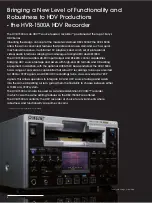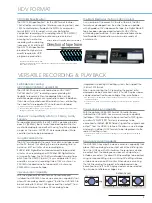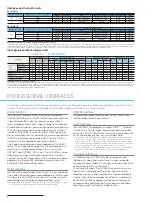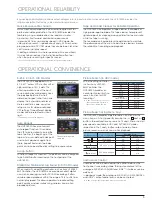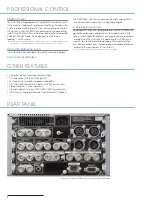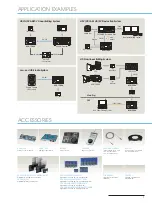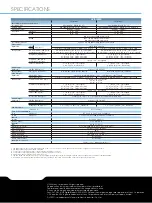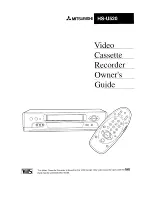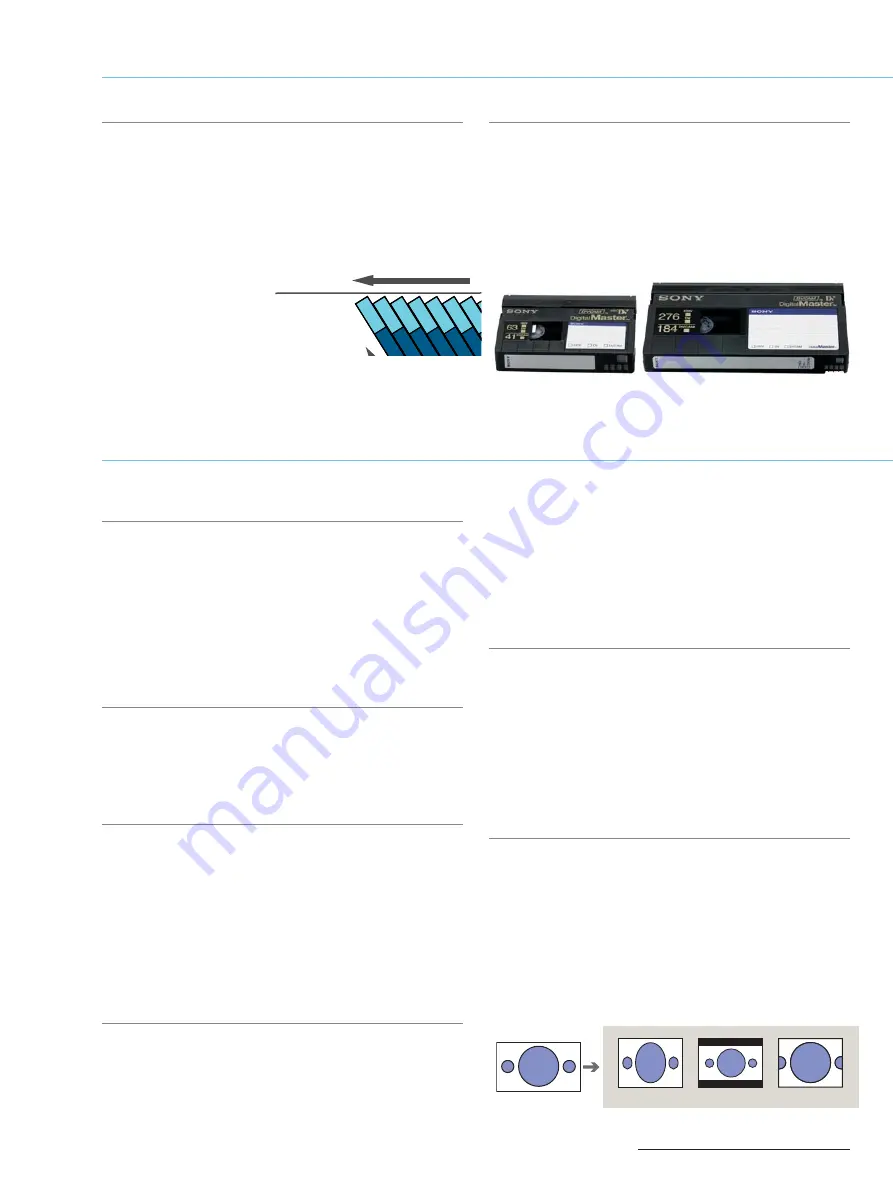
3
HDV FORMAT
VERSATILE RECORDING & PLAYBACK
HDV 1080i Specification
The HDV 1080i specification*
1
for the HDV format features
1,080 effective scanning lines (interlace scanning system) and
1,440 horizontal pixels. It adopts the MPEG-2 compression
format (MP@ H-14 for video), which uses 8-bit digital
component recording with a sampling rate of 4:2:0. MPEG-1
Audio Layer II is used as the audio compression format,
allowing for two-channel
recording with a sampling
frequency of 48 kHz/16-bit.
The HDV 1080i specification
provides the high picture
quality required for HDTV
programme production.
*1 The HDV format also defines the HDV
720p specification, which features 720 effective scanning lines (progressive scanning system)
and 1,280 horizontal pixels.
The Right Media for Optimum HDV Content
As a member of the proven DV family of formats, the HDV
format was developed from the outset to be compatible
with all grades of DV videocassette tape. The Digital Master™
Tape has been designed and tested with HDV VTRs for
outstanding performance. It is an ideal and reliable choice
for affordable HD productions across a wide variety of
environments.
Switchable Recording
HDV 1080i/DVCAM/DV and 60i/50i
The HVR-1500A can be switched between HDV 1080i*
2
,
DVCAM and DV (SP)*
3
recording modes, providing full
flexibility to record in either standard definition or high
definition depending on your production needs. In addition,
it can be switched between 50i and 60i systems, eliminating
the need for two separate VTRs, one for each standard.
*2 In HDV mode, editing capabilities are not available.
*3 The HVR-1500A supports DV (SP) mode only; DV (LP) mode is not available. Assemble or insert
editing is not supported in DV (SP) mode.
Playback Compatibility with DV (25 Mb/s) Family
Formats
For operational versatility, the HVR-1500A is designed to play
back DV (25 Mb/s) family format recorded tapes without a
mechanical adaptor and without having to switch playback
modes on the menu. DVCPRO™ 25 recorded tapes (M-size
cassettes) can also be played back.
Long Recording Time
The HDV format adopts the same track pitch and tape speed
as the DV format, thus offering the same recording time - a
maximum of 276 minutes when recording on a
PHDV-276DM DigitalMaster standard cassette tape and 63
minutes when recording on a PHDVM-63DM DigitalMaster
mini cassette tape. The DVCAM format adopts a wider track
pitch than the HDV/DV format (15 µm compared to 10 µm),
and offers a maximum recording time of 184 minutes on a
PDV-184N standard cassette tape and 40 minutes on a
PDVM-40N mini cassette tape.
Up-conversion Capability
With the optional HVBK-1520 Format Converter Board
installed, the HVR-1500A has an up-conversion capability that
allows DV recordings and SD signals*
4
fed to the HVR-1500A to
be converted to 1080i or 720P signals and then output*
5
from
the HD-SDI interface. This allows DV recordings to be
integrated into existing HD editing systems that support the
1080i or 720P format.
When up-converting the DV recording, the aspect ratio
displayed can be converted from 4:3 to 16:9. Display modes
can be selected from Squeeze, Edge Crop, or Letterbox.
*4 DV signals fed to the HVR-1500A’s i.LINK™ interface cannot be up-converted and output from
the HD-SDI interface.
*5 There may be a delay of one frame in outputting up-converted signals from the HD-SDI
interface.
Cross-conversion Capability
With the optional HVBK-1520 Format Converter Board
installed, the HVR-1500A has a cross-conversion capability
that allows 1080i recordings to be converted to 720P signals,
as well as 720/30P (29.97 frames/s) recordings to be
converted to 1080/60i (59.94 fields/s) signals. These signals are
output*
6
from the HD-SDI interface. This allows source footage
and assets in different HDV formats to be integrated into the
same HD editing system.
*6 There may be a delay of one frame in outputting cross-converted signals from the HD-SDI
interface.
Down-conversion Capability
The HVR-1500A has a built-in down-conversion capability that
allows 1080i recordings to be output as 480i and 576i signals
from the i.LINK and SD-SDI interfaces. These signals can also
be output from the analogue component, composite, or
S-Video connectors. This allows 1080i recordings to be edited
using non-linear editing systems running DV editing software
or to be viewed on an SD monitor. When down-converting
the 1080i recording, the aspect ratio displayed can be
converted from 16:9 to 4:3. Display modes can be selected
from Squeeze, Letterbox, or Edge crop.
Direction of tape travel
■
Track Pattern of the HDV 1080i Specification
HDV 1080i (16:9)
DVCAM/DV (4:3)
Squeeze
Edge crop
Letterbox


